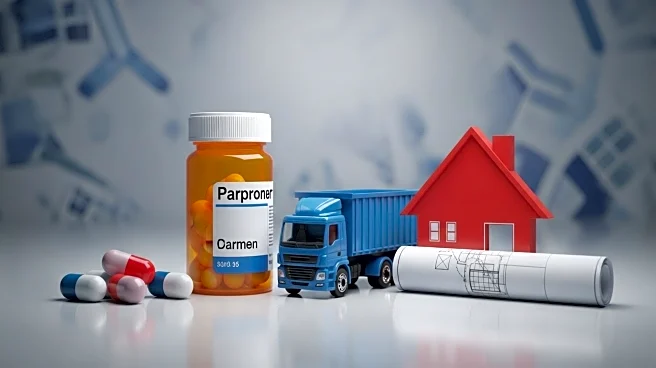What's Happening?
President Trump has announced the imposition of new tariffs on several imported goods, including pharmaceuticals, big-rig trucks, and home renovation materials. Starting October 1, a 100% tariff will be applied to branded or patented pharmaceutical products unless the manufacturing plant is based in the U.S. Additionally, a 25% tariff will be levied on heavy trucks manufactured outside the U.S., citing national security concerns. Home renovation materials such as kitchen cabinets and bathroom vanities will face a 50% tariff, while upholstered furniture will incur a 30% tariff. These measures are part of a broader strategy to bolster domestic manufacturing and protect national security.
Why It's Important?
The new tariffs are likely to have significant implications for various sectors of the U.S. economy. Pharmaceutical companies may face increased pressure to relocate manufacturing operations to the U.S., potentially affecting drug prices and availability. The tariffs on trucks and home renovation materials could lead to higher costs for consumers and businesses, impacting industries reliant on these goods. By encouraging domestic production, the tariffs aim to strengthen U.S. manufacturing capabilities and reduce dependency on foreign imports, aligning with broader economic and security objectives.
What's Next?
The implementation of these tariffs may prompt reactions from affected industries and international trade partners. Companies might seek exemptions or consider relocating production to the U.S. to avoid tariffs. Trade partners could respond with retaliatory measures, potentially leading to trade disputes. The U.S. government may also face legal challenges from businesses and trade organizations opposing the tariffs. Monitoring the economic impact and industry responses will be crucial in assessing the long-term effects of these policies.











